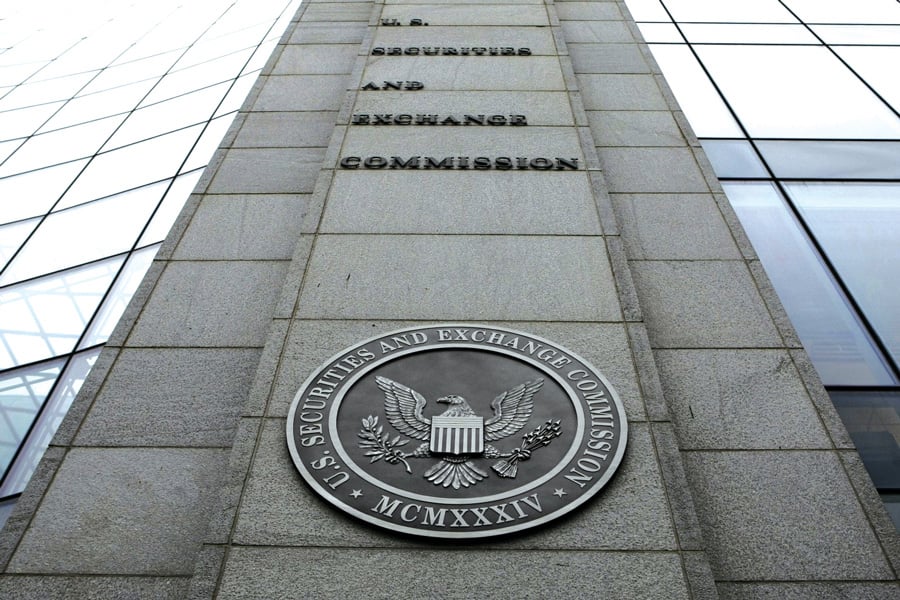

As the Securities and Exchange Commission conducts the second phase of compliance examinations for Regulation Best Interest, it is looking for more than good-faith efforts but is not yet dropping the hammer when brokerages fall short on adhering to the broker advice standard.
The SEC pushed forward with Reg BI implementation on June 30 even though most financial firm operations were disrupted by the coronavirus pandemic. Acknowledging those challenges, the agency said it would look for "good-faith" compliance. In December, it released a statement saying the next round of exams would be tougher.
But an SEC official indicated Thursday that the reviews are still meant more to help firms comply than to punish them for violations of Reg BI.
“It’s something beyond good faith,” John Polise, associate director of the SEC Division of Examinations, said during a Securities Industry and Financial Markets Association webcast. “We’re not looking to do gotcha exams or make enforcement referrals per se.”
The SEC examinations review a firm’s compliance with the disclosure, care, conflict of interest and compliance obligations of Reg BI, a 770-page regulation that prohibits brokers from putting their own financial interests ahead of their clients’ interests.
“We’re still understanding that the rule is complicated, that there are myriad ways for individual firms to address the four core obligations,” Polise said. “I think we still have not identified ideal or best practices and could do quite a bit more in helping the industry comply with that. It’s important for people to realize it is a serious obligation.”
In the first round of exams, Polise said, firms generally were trying to comply. The kind of problems detected would merit a deficiency letter rather than an enforcement action.
Reg BI and related measures — such as the Form CRS disclosure document and an interpretation of the Investment Advisers Act — were the signature rulemaking of former SEC Chairman Jay Clayton’s term.
Clayton said Reg BI is significantly stronger than the previous broker suitability standard. Investment advocates contend Reg BI is too weak to curb broker conflicts of interest. They hope a Democratic-majority SEC under the Biden administration’s nominee for chairman, Gary Gensler, will define "best interest," detail conflict mitigation and pursue tough enforcement.
For now, firms are grappling with compliance. The key is to keep a record of recommendations to clients in order to show the SEC how the firm tried to adhere to Reg BI, said Linda Shirkey, managing director of the Bates Group, a compliance consultant.
“The three Ds of compliance come into play here, which is document, document, document,” Shirkey said.
Polise also endorsed documentation.
“Documentation, while not required by the rule, is certainly useful and I think will be helpful to anyone who is subject to an exam or has to deal with an SEC inquiry one way or another,” he said.
Some firms are turning to technology for Reg BI compliance, said Karen Sukin, executive vice president and deputy general counsel at Primerica Inc. They are using automated processes and algorithms to ensure registered representatives stay within Reg BI advice parameters.
Technology also can be used to keep track of how financial advisers are adhering to the Reg BI mandate to consider the cost of the investment product they’re recommending and compare it to other alternatives, said Susan Schroeder, a partner at the law firm WilmerHale.
“Thinking about … data integrity from the very beginning, I think, will be an important part of building a system that can withstand scrutiny,” said Schroeder, a former director of enforcement at the Financial Industry Regulatory Authority Inc.
Reg BI doesn’t require that registered reps always recommend the lowest-cost investment. But if they promote a more expensive one, they better be able to explain it to the SEC.
“To the extent you go that way, it’s good to document it,” Polise said.
Cost could become the coin of the realm under Reg BI, said Stephanie Nicolas, a partner at WilmerHale. “Cost may end up becoming a proxy for best interest.”

Rajesh Markan earlier this year pleaded guilty to one count of criminal fraud related to his sale of fake investments to 10 clients totaling $2.9 million.

From building trust to steering through emotions and responding to client challenges, new advisors need human skills to shape the future of the advice industry.

"The outcome is correct, but it's disappointing that FINRA had ample opportunity to investigate the merits of clients' allegations in these claims, including the testimony in the three investor arbitrations with hearings," Jeff Erez, a plaintiff's attorney representing a large portion of the Stifel clients, said.

Chair also praised the passage of stablecoin legislation this week.

Maridea Wealth Management's deal in Chicago, Illinois is its first after securing a strategic investment in April.
Orion's Tom Wilson on delivering coordinated, high-touch service in a world where returns alone no longer set you apart.
Barely a decade old, registered index-linked annuities have quickly surged in popularity, thanks to their unique blend of protection and growth potential—an appealing option for investors looking to chart a steadier course through today's choppy market waters, says Myles Lambert, Brighthouse Financial.
